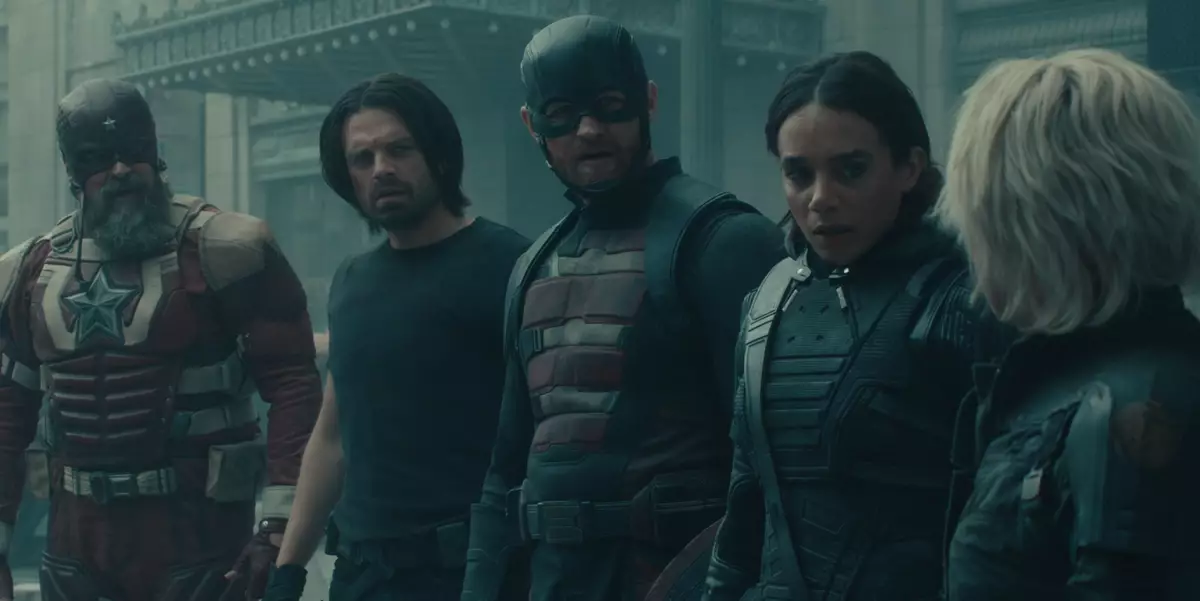Marvel’s new film, *Thunderbolts*, shockingly diverts the spotlight from its typical Avengers ensemble, instead shining a light on a compelling collective of ex-villains. The film invites audiences into an unpredictable yet riveting narrative, providing an exhilarating contrast to the conventional superhero arc that fans have come to expect. The essence of this flick lies not just in high-stakes action, but in the emotionally charged histories of its characters, presenting a poignant reflection on redemption and moral ambiguity.
A Unique Ensemble Cast
Under the expert direction of Jake Schreier, *Thunderbolts* brings together fan-favorites like Florence Pugh and Sebastian Stan, imbuing each character with a vivid personality that draws the viewer in. Pugh’s portrayal of Yelena Belova is unforgettable, balancing a tough exterior with emotional vulnerability as she confronts her past traumas. Stan’s Bucky Barnes, already familiar to fans, grapples with his dual identity, a recurring theme within the Marvel universe that feels particularly relevant today.
Supporting them are David Harbour’s Red Guardian, whose eccentricity provides a much-needed comic relief; Wyatt Russell’s U.S. Agent, a reflection of government-sponsored superhero angst; and Hannah John-Kamen’s Ghost, whose struggles with stability add layers of complexity to the group. The inclusion of Olga Kurylenko as Taskmaster further enriches the dynamic, presenting a character whose silent demeanor conceals a wealth of narrative potential. Fresh talent, like Geraldine Viswanathan, introduces new elements that promise to captivate a wider audience and expand the Marvel landscape.
High-Stakes Interpersonal Drama
Unfolding as a mission orchestrated by the enigmatic CIA director Valentina Allegra de Fontaine, played adeptly by Julia Louis-Dreyfus, *Thunderbolts* cleverly intertwines satirical undertones and action-packed sequences. The film grapples with themes of loyalty, betrayal, and trust, creating a fascinating interplay within this troubled alliance. As the heroes – or villains, depending on one’s perspective – venture deeper into their dangerous mission, the stakes are amplified; it becomes increasingly clear that their biggest fight may not be with external threats, but rather with their own inner demons.
Pugh’s assertion that the film embodies an “A24-feeling assassin movie with Marvel superheroes” reveals an inherent audacity that places *Thunderbolts* in a unique cinematic space. This contrasts sharply with the often formulaic superhero narratives typically presented by Marvel. By exploring deeper emotional landscapes and embracing indie-inspired storytelling, the film challenges viewers to reconsider their definitions of heroism and villainy.
The Shift in Marvel’s Cinematic Tone
As *Thunderbolts* marks the conclusion of Marvel’s Phase Five, it earns the distinction of being a pivotal entry in the franchise. The film steps away from the flashy, often predictable tropes familiar to superhero films and immerses audiences in a narrative ripe with unexpected twists. The film’s anticipated transition to streaming platforms like Disney+ post-theatrical release will offer fans another chance to dive deeper into this richly layered universe. Until that time, *Thunderbolts* commands the cinematic stage, inviting audiences to witness a new breed of heroism born from imperfection and complexity. As Marvel evolves, it seems poised for even greater storytelling experimentation ahead.

